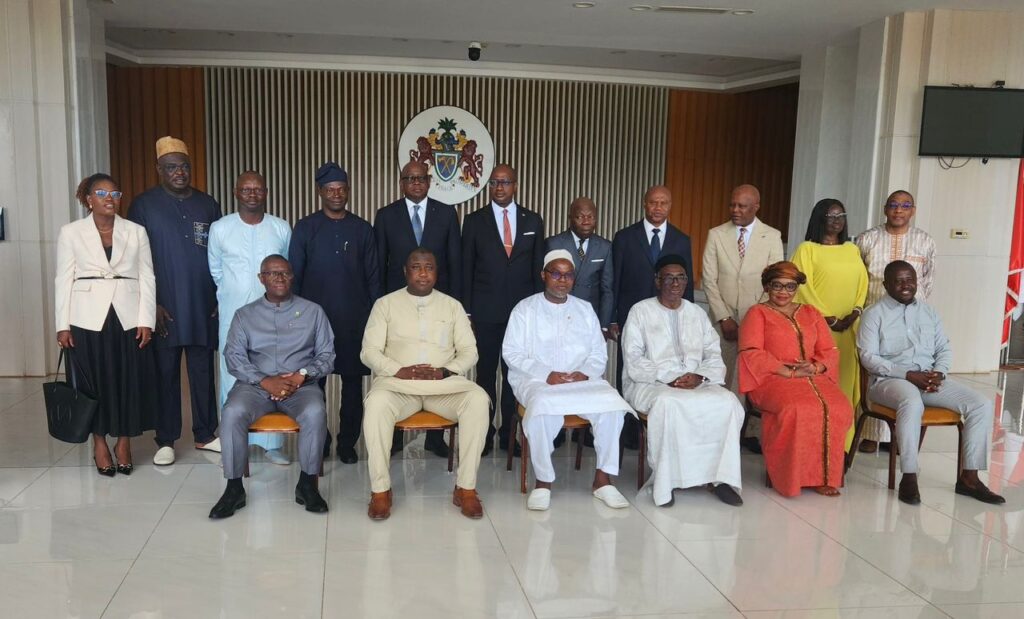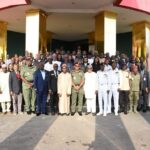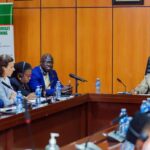Justice Ministers Converge on Banjul, Charts a Bold Legal Path for ECOWAS Court.
By Raymond Enoch.
A crucial chapter in the legal history of the Economic Community of West African States (ECOWAS) unfolded last week in The Gambia’s capital, as ECOWAS Ministers of Justice gathered for a high-level ministerial meeting to validate two transformative legal instruments aimed at strengthening the Community Court of Justice.
The meeting whovh held from August 29 to 30, 2025, delved into a four-day technical session by regional legal experts who meticulously reviewed and refined the Draft Harmonised Protocol and the Draft Arbitration Rules of the Court.

The Banjul gathering, convened by the ECOWAS Commission in partnership with the Government of The Gambia, brought together an elite ensembled of regional legal minds, including Ministers of Justice, senior ECOWAS officials, and the President of the Community Court of Justice.
At the heart of the deliberations was a shared resolve to reposition the Court as a more robust, efficient, and accessible mechanism for justice delivery across the ECOWAS region. With a renewed focus on commercial dispute resolution and human rights enforcement, the two draft documents are expected to usher in a new era for the Court — one marked by clarity, consistency, and wider jurisdictional reach.
“The validation of these legal instruments marks a turning point in the evolution of the ECOWAS legal framework,” remarked one Minister present at the session. “We are laying the groundwork for a Court that not only protects rights but also promotes economic stability through legal predictability.”
The Draft Arbitration Rules, in particular, are being heralded as a game-changer. Designed to serve as a regional mechanism for resolving commercial disputes, they align with the broader objectives of the African Continental Free Trade Area (AfCFTA). Legal experts believe that their adoption will boost investor confidence by providing businesses and investors with a reliable and impartial dispute resolution platform within the ECOWAS space — an essential tool for cross-border trade.
On the other hand, the Draft Harmonised Protocol seeks to bring the Court’s structure and operations in line with the Revised ECOWAS Treaty and recent decisions of the Authority of Heads of State and Government. The revised protocol touches on the jurisdiction, organization, and functioning of the Court, ensuring greater synergy with evolving regional legal norms and governance standards.
According to the President of the Community Court of Justice, the two instruments are not just technical adjustments but a strategic recalibration of the Court’s role within the regional integration agenda.
“Justice is the bedrock of integration,” the President stated during the closing ceremony. “These instruments reaffirm our commitment to a Community Court that serves the people, protects human rights, and provides economic actors with a dependable avenue for redress.”
Upon validation by the Ministers of Justice, both documents will be presented to the Authority of Heads of State and Government — the highest decision-making body in the ECOWAS architecture — for final adoption. Once ratified, they are expected to take immediate effect, providing the Court with the legal backbone required to address contemporary challenges in both the political and commercial spheres of the region.
Observers note that the Banjul meeting also symbolized growing consensus among ECOWAS member states on the urgency of reforming regional legal mechanisms to respond to an increasingly complex socio-economic landscape.
The Ministerial Meeting concluded with a communique underscoring the significance of the instruments, expressing appreciation to the Government of The Gambia for hosting the event, and reaffirming the region’s commitment to strengthening the rule of law and judicial cooperation in West Africa.
As the instruments head to the Authority of Heads of State for final approval, the region watches closely — aware that what transpired in Banjul may well define the next decade of legal governance and regional unity across ECOWAS.










